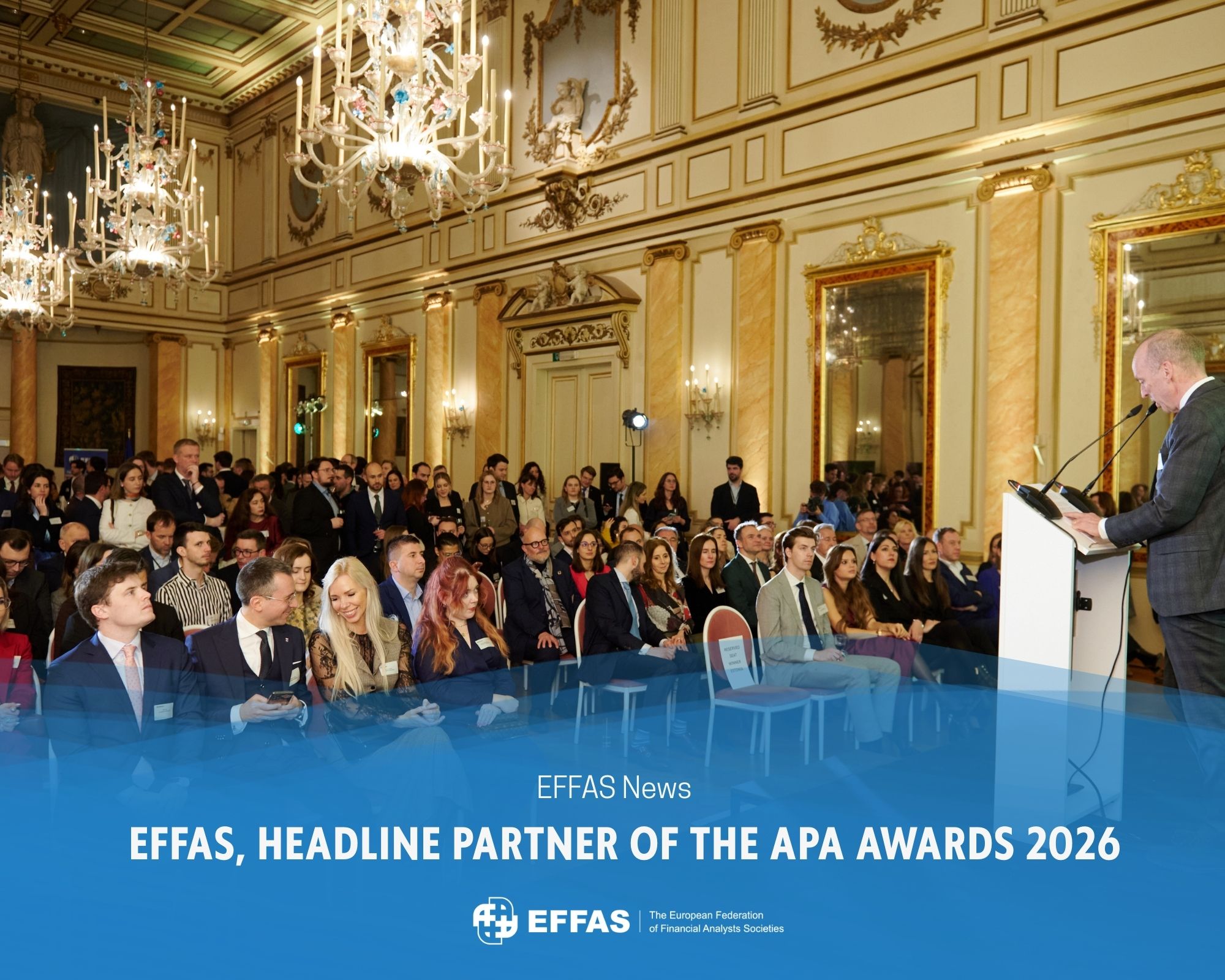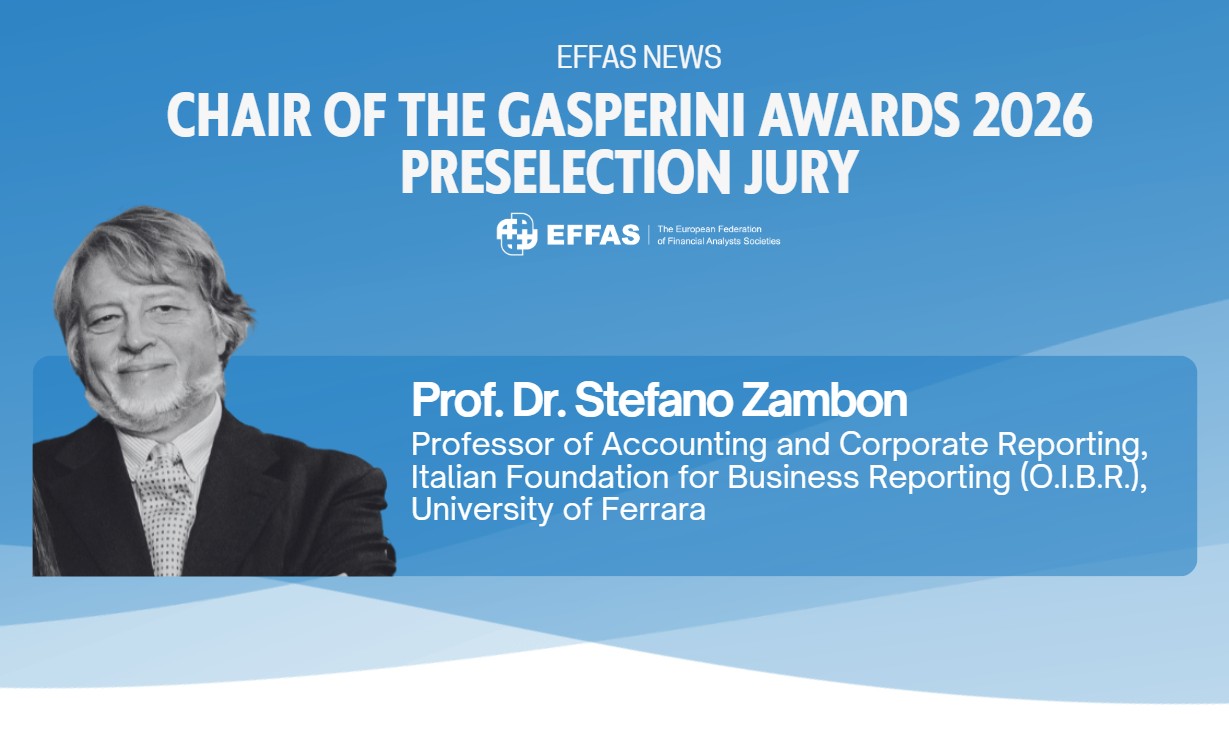Javier de Frutos, Chair of the EFFAS Commission on Financial Reporting (CFR), attended the inaugural IFRS Foundation Sustainability Symposium on 17 February 2023 in Montréal, Canada. Here is his summary of the key points.
The meeting convened global businesses, investors, and policy makers to discuss progress towards a global baseline of sustainability standards to facilitate investment decisions. Below are Javier’s notes on what he considers to be the main points of interest to EFFAS users.
Opening Remarks
- Emmanuel Faber, Chair of the ISSB (*) noted that the ISSB had received high-level messages from the group of G-20 countries, IOSCO and the FSB regarding IFRS S1 and S2 related to General Disclosures and Climate-related Disclosures, respectively for the timely publication of the standards. Their final approval is expected in June and the effective date is set for 1 January 2024.
- Mark Carney, UN Special Envoy for Climate change remarked that to facilitate companies to report climate-related risk scenarios on a comparable basis and provide investors with a set of high-quality standards it was necessary to consolidate the different institutions providing sustainability-related guidelines under the ISSB.
S-1 and S-2
- Sue Lloyd, ISBB Vice-Chair, stated that IFRS S1 and S2 are built over the TCFD guidelines and the Scope-1-2-3 methodology and some guidelines from the SASB have also been incorporated.
- Companies should start working on potential risk scenarios to provide reliable estimates and relevant disclosures. The application of the standards might be challenging at the beginning and would improve over time. Industry specific aspects would be required of companies.
- She emphasized that the effective date is an ambitious target although necessary to send a strong message to companies to start their implementation.
Impact on Jurisdictions
- Global market regulators and financial market participants will be following IFRS standards. Securities regulators will evaluate how sustainability standards might affect security prices. The standards should be comparable, and material and a global baseline defined. Investors should be involved in the process particularly when developing industry information.
- It was emphasized the ongoing engagement with the EU in developing an interoperability table. Also, it was highlighted the importance of collaborating with jurisdictional initiatives to provide a package of financial and sustainability-related disclosures. Individual jurisdictions already using TCFD guidelines might have to be revised and adjusted to avoid inconsistencies with the standards.
- The request from constituents for proportional reporting requirements for smaller companies and emerging economies particularly considering the challenges with some specific proposed requirements in IFRS S2 was pointed out. It was added that various reliefs had been built into the standards to help with their adoption.
The standards and SMEs
- Representatives from emerging economies and the IFC expressed the challenges to be faced by SMEs particularly in term of resources. There is a gap between large companies and SMEs in capacity building and emerging economies are significantly underfunded to implement the new standards.
- It was stressed that proportionality and scalability in the application of the standards was needed. The ISSB noted that work was already being developed with the SMEs Working Group and the ISSB would try to adapt to their needs.
- For SMEs faster integration will be through digitalization particularly in the supply chain of providing information. It was noted the importance of applying an appropriate taxonomy to the reporting process. In Singapore financial reporting is already on a digital basis and the new standards would be incorporated.
Sustainability information and the financial statements
- Andreas Barckow, Chair of the IASB, emphasized the need for the connection between the financial statements and the sustainability standards.
- It was noted that the Management Commentary project has been postponed. The project would likely be developed jointly between the IASB and the ISSB to improve management comments while capturing innovation in reporting.
- The IASB Management Commentary should be a multi-stakeholder’s document contemplating the incorporation of certain aspects of the sustainability standards being developed.
- It was added that corporate reporting has evolved significantly over recent years and would continue evolving. The document should be a first step toward an integrated corporate reporting as companies financial and sustainability reporting is interlinked.
Javier de Frutos and his fellow commission members on the CFR will be following the developments in this area closely to keep EFFAS users informed.






